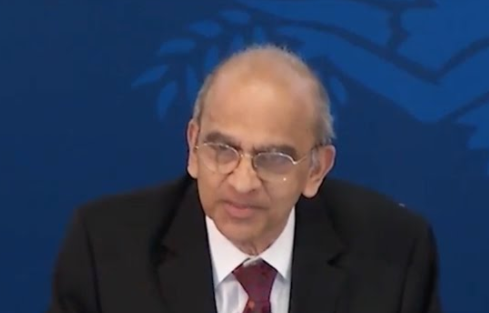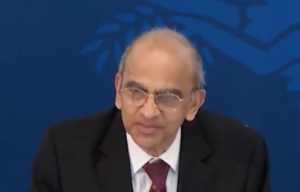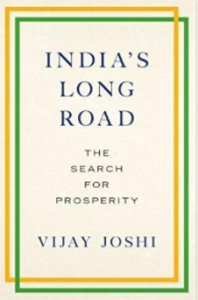
“India could provide basic income to all by diverting wasted subsidies”- Joshi

India’s economic resurgence is the focus point by Vijay Joshi, an emeritus fellow of Merton College, and Indian economist who has spent most of his professional life in the Oxford University gives revealing account of the past and present Indian economic development, as he casts a bright future on the prospects ahead. In his latest book, he states that If India’s focus is to become a high-income country in the next generation, then its economic, social and political performance needs to radically improve.
Although there are plenty of obstacles on many fronts there is still room for improvement to achieve this goal. Many of these problems stem from the failures of the state and its political processes that guide it.
Joshi explains in his book that there are two main pillars in the socio-political setting of the Indian state that the country is world’s largest democracy and an extremely diverse society, however, the challenge is to improve within these constraints.
India soon will be the most populous country in the world with the largest democracy and despite progress in the last three decades 360m Indians still lived in dire poverty. If one want to eliminate extreme poverty from the world, it must be first eliminated in India.
He considers the post-independence growth record and the country’s inability to create remunerative employment, the excessive domination of publicly owned enterprises, the lack credible quality of Indian infrastructure and inadequate control and management of environmental regulation. The book further analyses the depth of macroeconomic management and the appalling quality of state-provided education, and healthcare and the need for a better safety net for the poor, the prevalence of corruption and the role of India in the world economy.
Since 1947 independence the economic liberalisation that began in the 1980s, which got accelerated dramatically after the balance of payments crisis in 1991. In the current years, the growth rose to 6 per cent (4 per cent per head). However, in the first decade of 2000s growth slowed down. The principal reason for this recent slowdown is a marked weakening of investment by an over-indebted private sector.
Joshi prescribes rapid inclusive, stable and sustainable growth within a political framework of liberal democracy, if the income per head could grow at 7 per cent a year, India would achieve high –income status, at the level of Portugal, within a quarter century. Only three economies –Taiwan, South Korea and China have achieved that. So this represents an enormous challenge that needs new reforms and strict management. The basic flaw of the current model Joshi argues that “ is a failure to put the role of the state, and the relationship between the state, the market and the private sector on the right footing. The State does what it does not need to do and fails to do what it does need to do.”
In the last 10 years if the workforce increased over 63m, of this 44m joined the unorganised sector and 22m became informal workers in the organised sector, as several formal workers in the organised sector fell by 3m.
India needs effective government to supply public goods, public services and competent regulation on which an efficient economy depends. An international survey gives India a very low ranking for efficiency and honesty of the state and the ease of doing business. Among several failures is the waste of state resources on inefficient subsidies that, though often given in the name of the poor actually go to the better off. India needs to provide a basic income to all Indians sufficient to lift everybody out of extreme poverty simply to utilising resources wasted on grotesquely costly subsidies. Often state governments continue to bribe farmers with free power, at expense of a reliable electricity supply.
India’s Long Road: The Search for Prosperity by Vijay Joshi, Oxford University Press £22.99, 360 pages.

